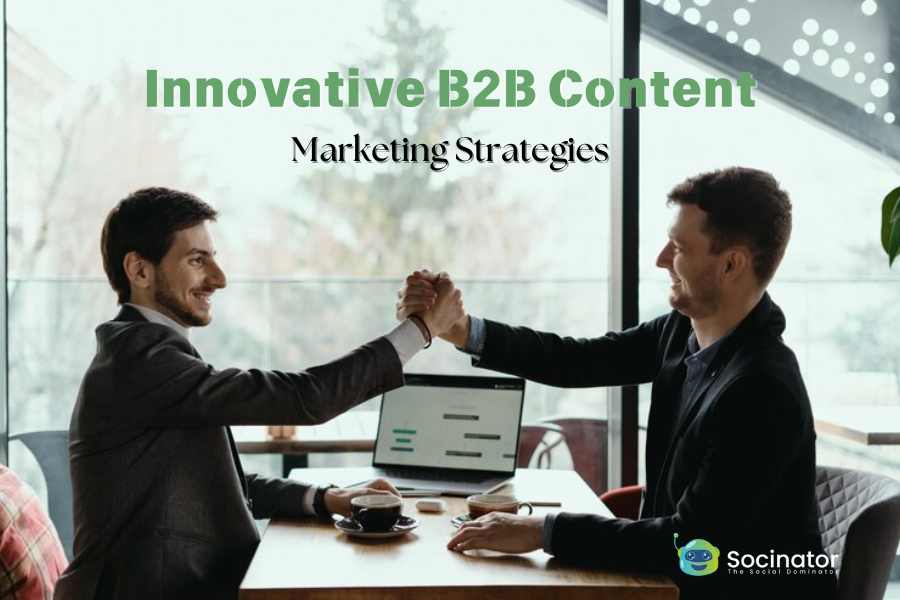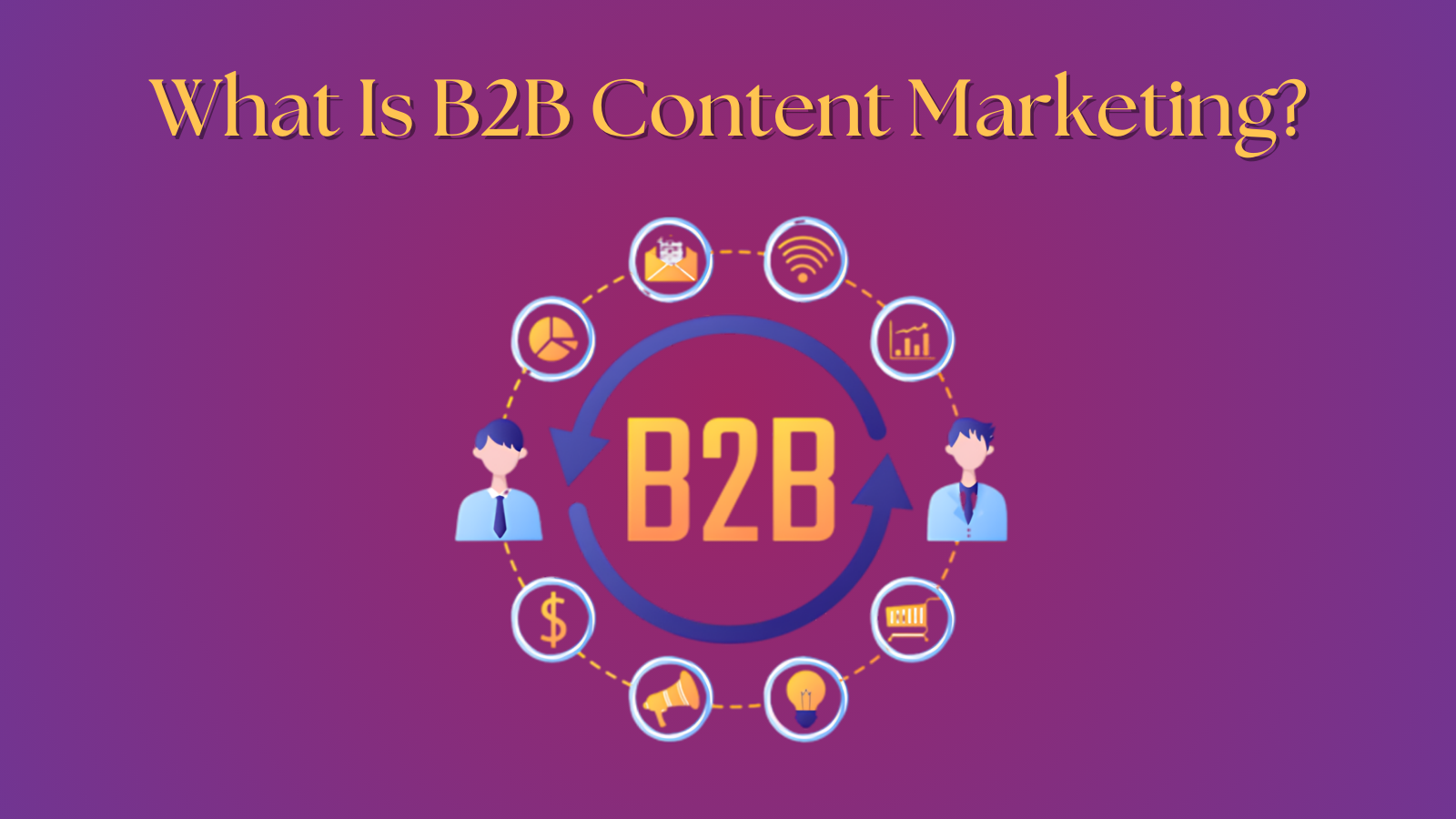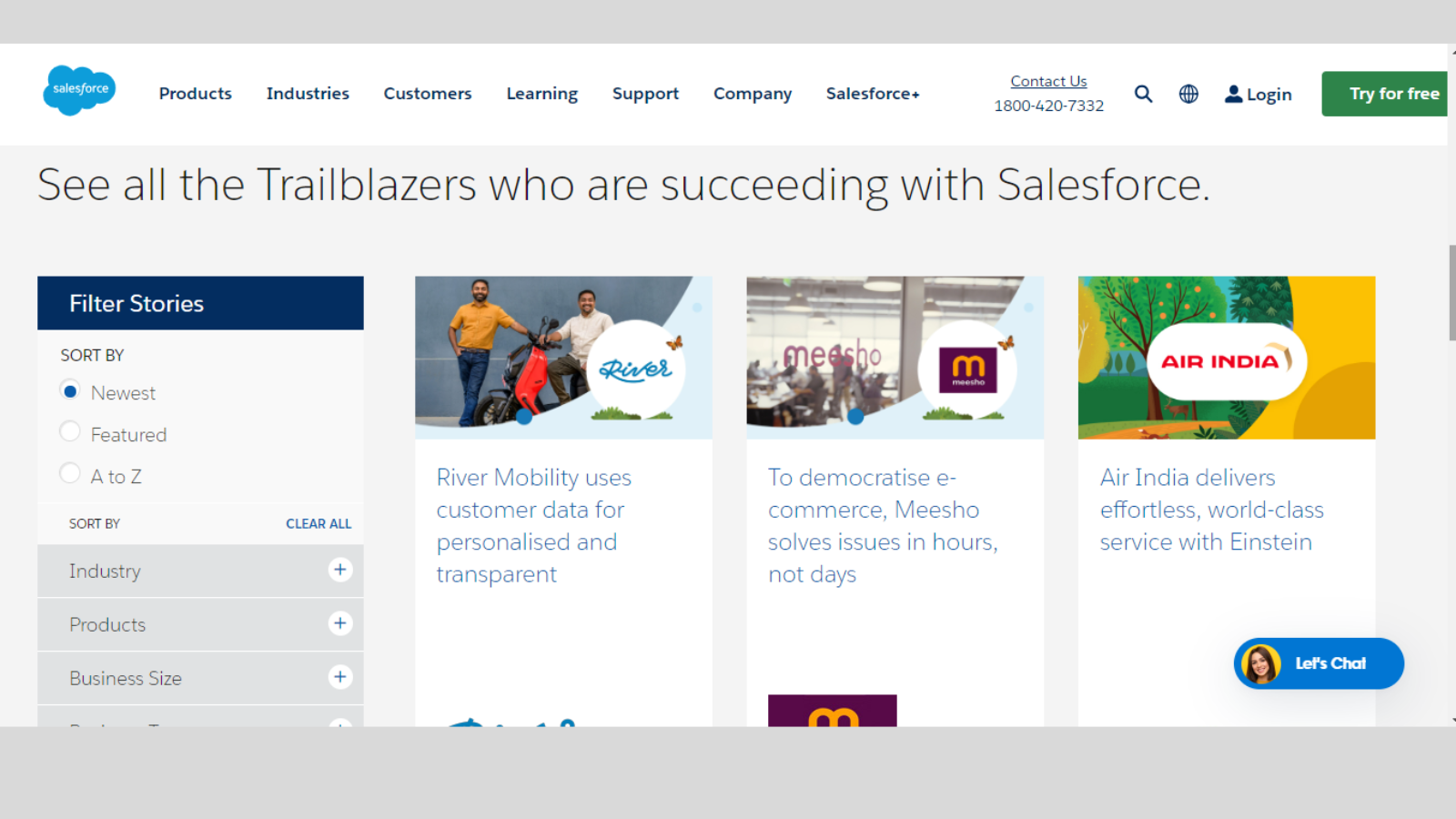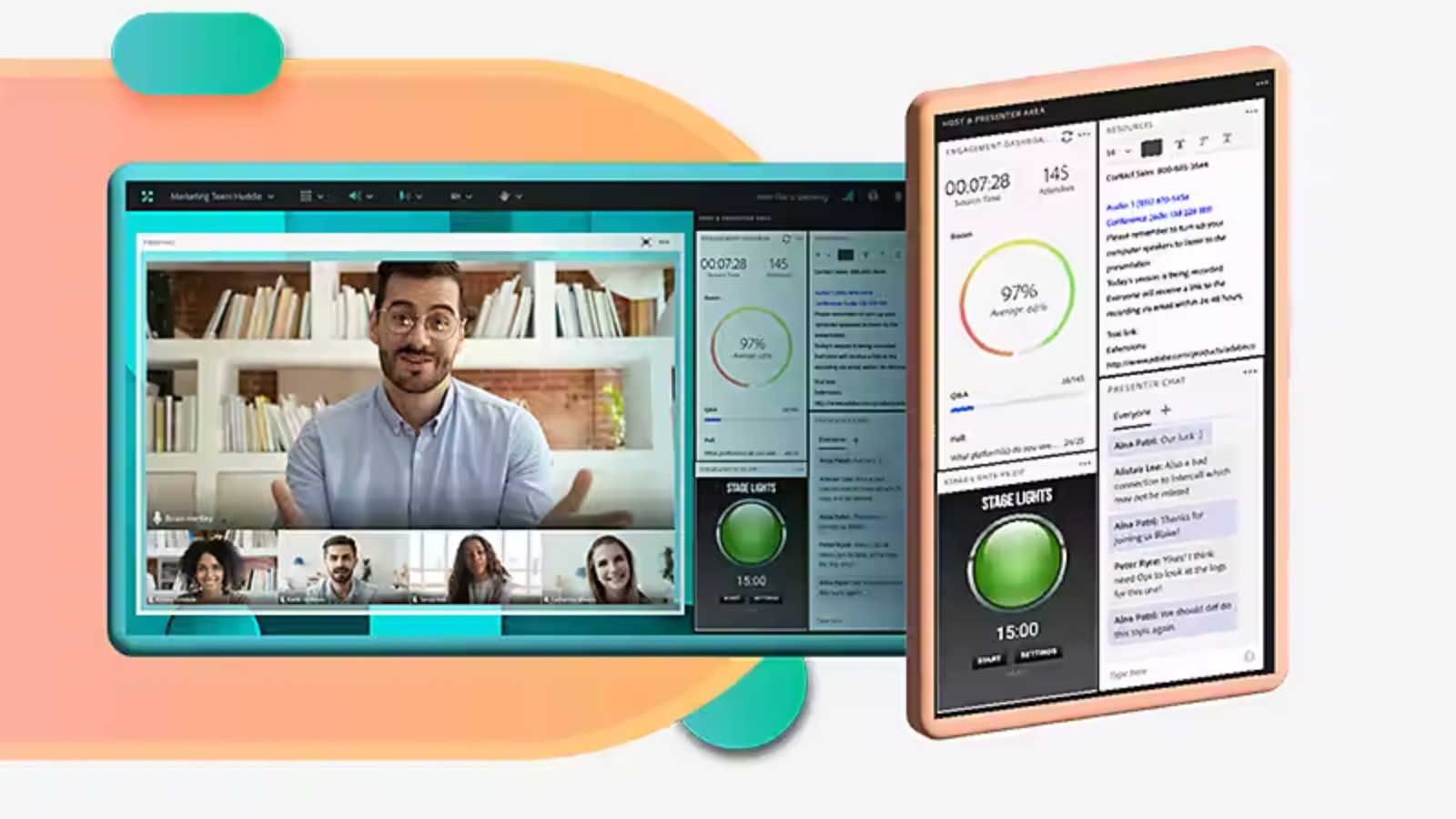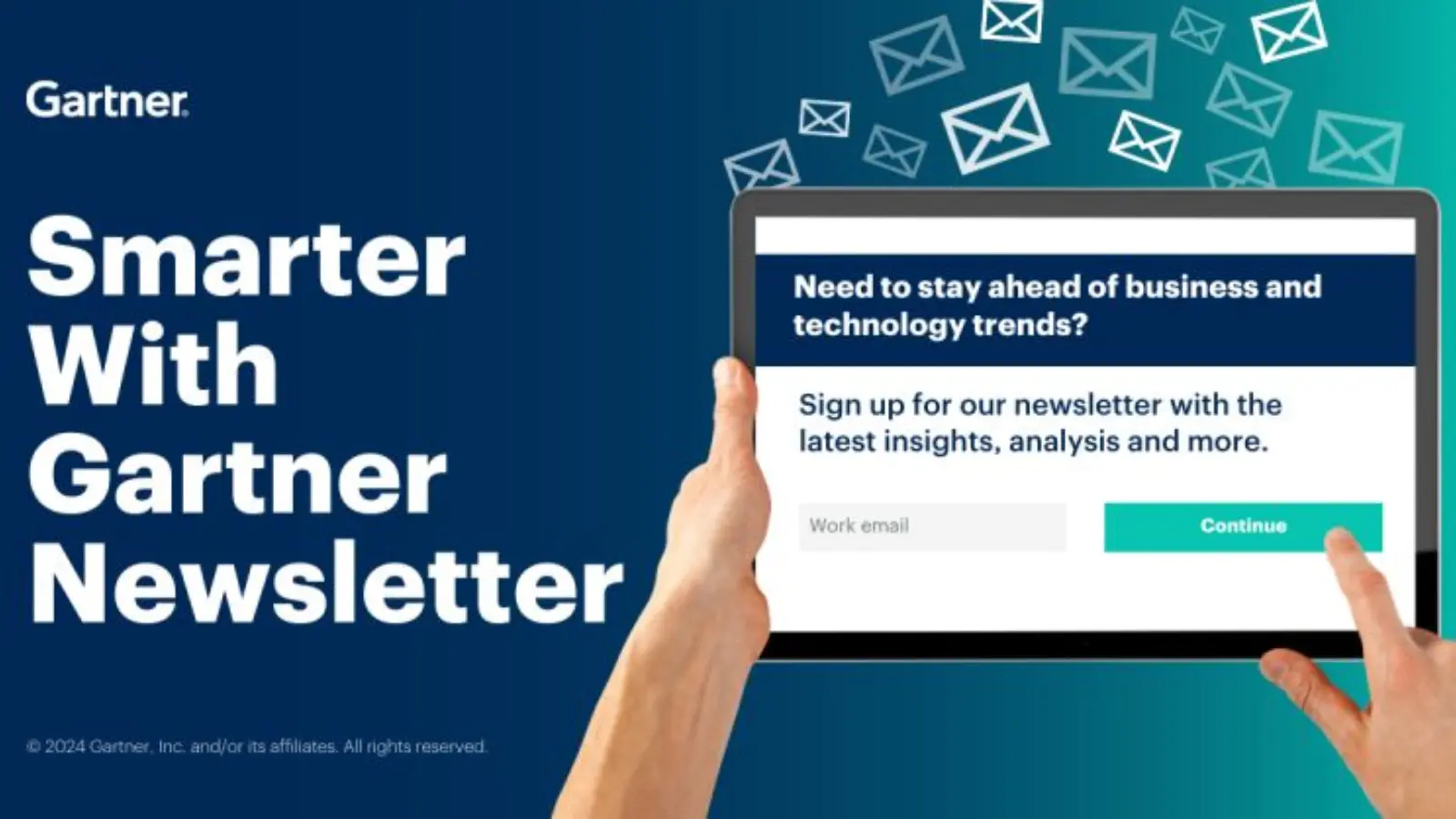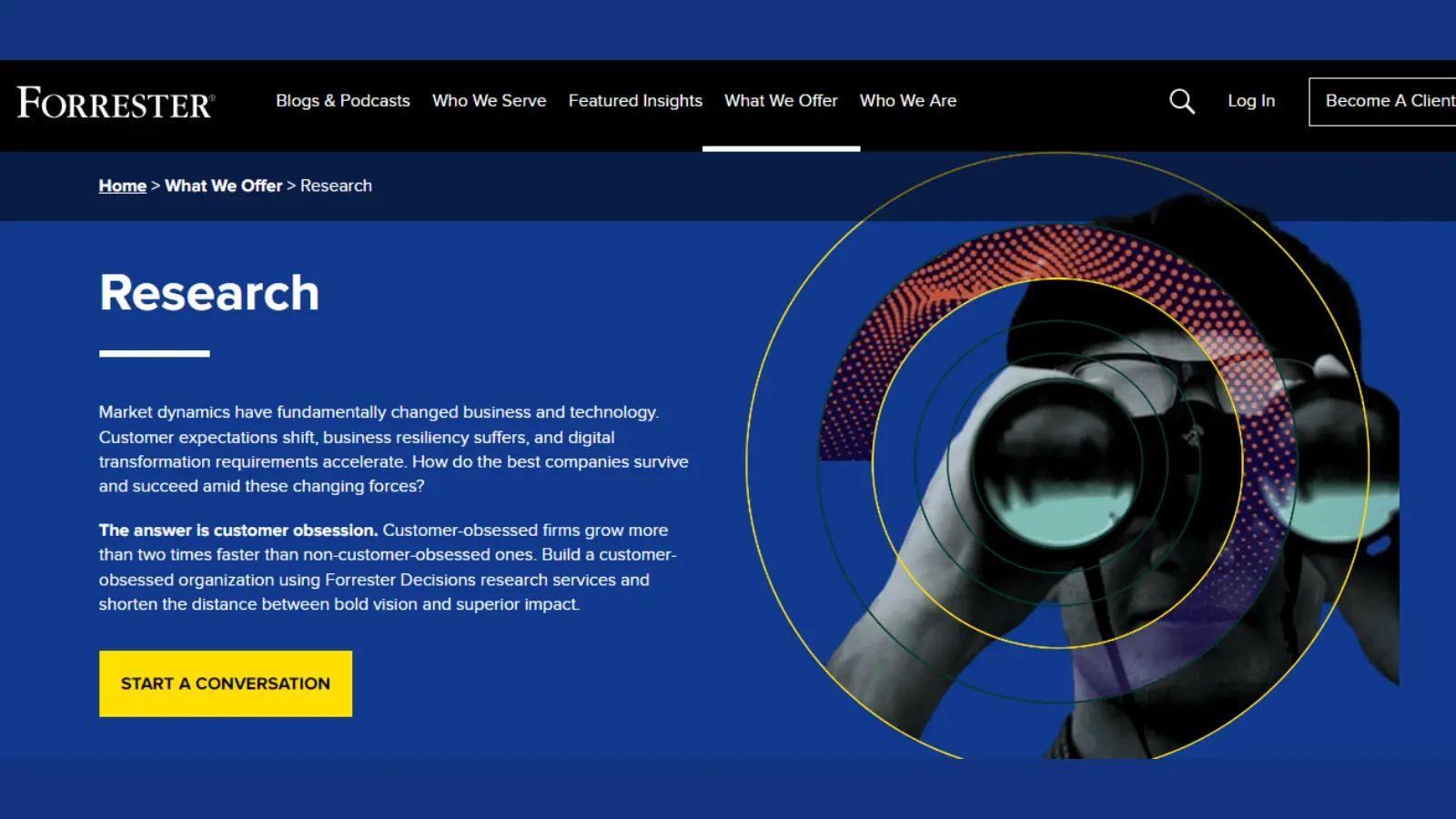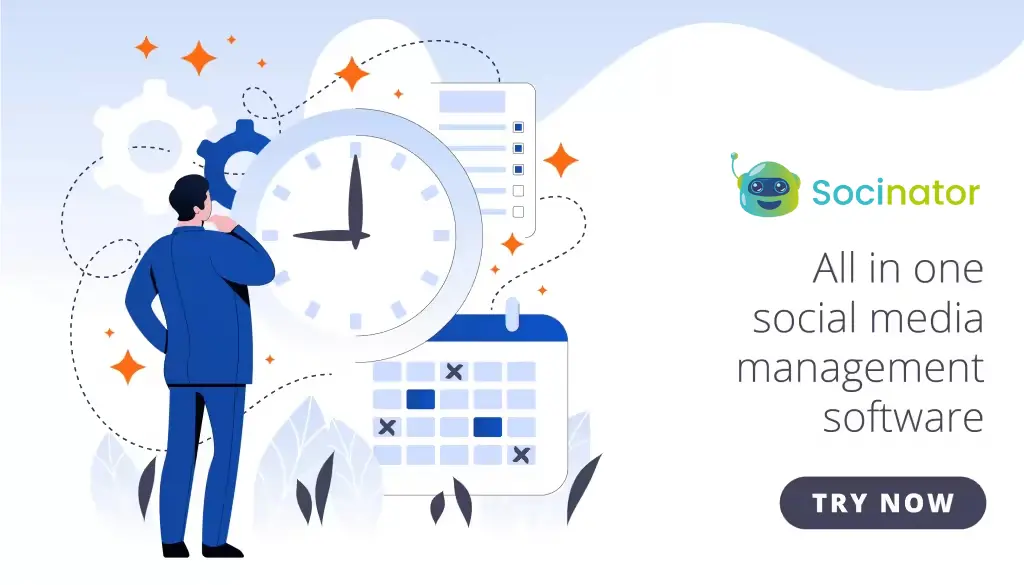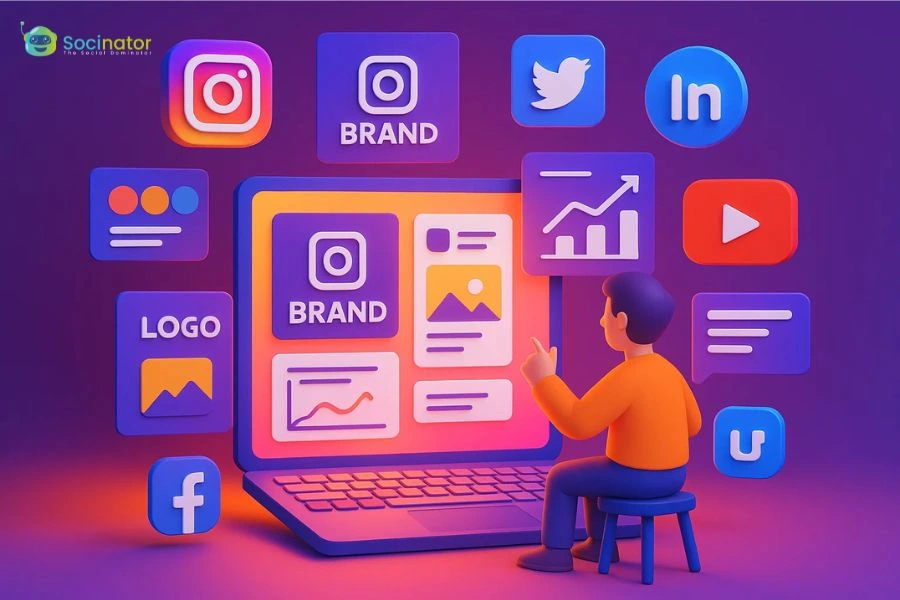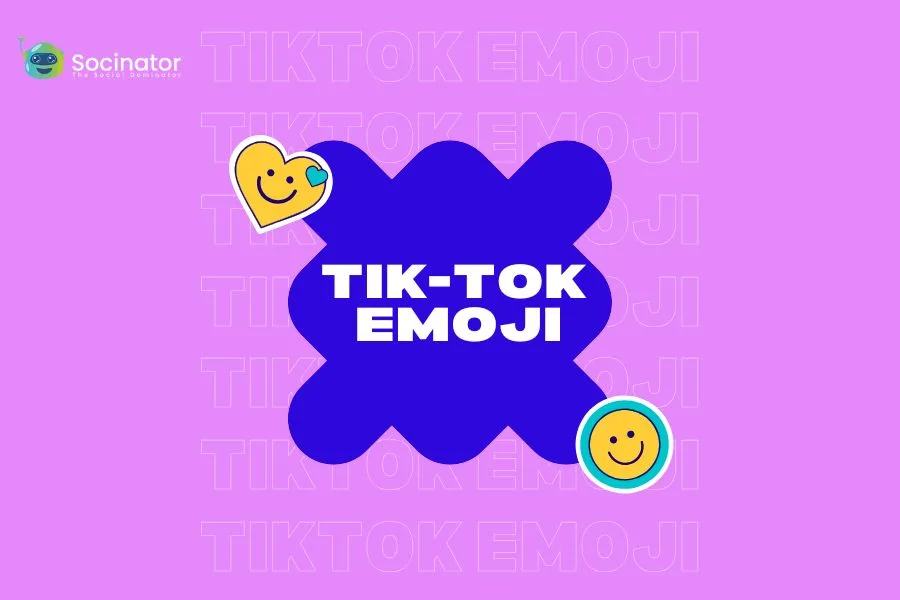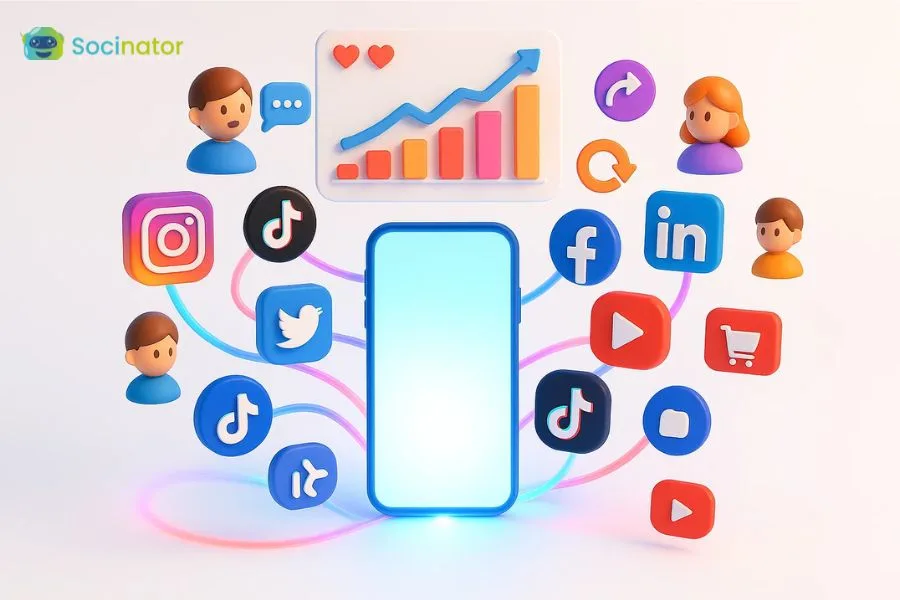Today’s B2B marketers are defined by their agility, reliance on data-driven insights, and proactive embrace of emerging trends like AI and interactive content.
These modern marketers understand that success depends on leading with innovative strategies, not merely keeping pace.
In this blog post, we will delve into ten cutting-edge B2B content marketing strategies set to redefine success. These strategies are meticulously designed to boost engagement, foster trust, and yield measurable outcomes.
Whether you want to refine your existing approach or step into the B2B marketing arena, these insights will equip you to thrive in an increasingly competitive landscape.
Let’s explore these innovative strategies and see how they can enhance your B2B content marketing efforts in the coming year.
In a hurry? Listen to the blog instead!
What Is B2B Content Marketing?
B2B content marketing is a strategic approach in which businesses create and distribute valuable, relevant, consistent content to attract and engage other companies. The goal is to build relationships, provide solutions, and ultimately drive profitable customer actions.
B2B content marketing type targets businesses’ needs, challenges, and interests instead of individual consumers.
Here are the key components and benefits of B2B content marketing:
Key Components:
Target Audience Understanding: Deep understanding of the target businesses, their pain points, challenges, and needs.
Content Strategy: Develop a comprehensive plan that aligns content creation with business goals and audience needs.
High-Quality Content Creation: Crafting content that informs, educates, and delivers value to the target audience. It includes blog posts, white papers, case studies, eBooks, webinars, etc.
SEO and Keyword Optimization: Ensuring content is optimized for search engines to attract organic traffic from businesses searching for solutions.
Distribution Channels: Utilizing channels such as social media marketing, email newsletters, industry publications, and partnerships to distribute content effectively.
Lead Nurturing: Using content to guide potential B2B buyers through the sales funnel, from awareness to consideration to decision-making.
Benefits of B2B Content Marketing –
Builds Trust and Authority: Consistently offering valuable insights helps businesses become industry thought leaders and trusted experts.
Generates Quality Leads: Effective content marketing attracts and engages potential clients, leading to higher-quality leads and better conversion rates.
Nurtures Relationships: Content marketing helps maintain ongoing communication with potential and existing clients, fostering long-term relationships and loyalty.
Educates the Audience: Quality content educates the audience on industry trends, best practices, and solutions, aiding informed decision-making.
Improves SEO and Online Presence: Regularly updating and optimizing content boosts a company’s search engine visibility, increasing website traffic.
B2B Content Marketing Strategy –
B2B content marketing continues to evolve as businesses adapt to changing consumer behaviors and technological advancements.
Here are some innovative strategies to consider:
Create Interactive Content Experiences
Interactive content involves dynamic engagement with users, requiring their active participation through quizzes, polls, calculators, interactive infographics, and assessments. This approach boosts user engagement and retention, offers valuable insights, and differentiates your brand with a unique user experience. Additionally, interactive content can boost time spent on your website, improving SEO rankings and leading to higher conversion rates.
Leverage AI for Content Creation
Using AI in content creation streamlines the production process, enabling quick generation of blog posts, product descriptions, and automated social media posts. AI’s capability to personalize communication and analyze data optimizes content strategies, saving time and resources while ensuring content personalization at scale and facilitating data-driven decision-making. Moreover, AI can help identify trending topics and optimize content distribution to reach the right audience at the right time, increasing overall effectiveness.
Offer Virtual Reality (VR) Product Demos
VR technology offers immersive product demonstrations, allowing potential customers to experience products virtually. This hands-on experience, free from physical constraints, effectively showcases product capabilities, enhancing customer engagement and interest, and providing a memorable and informative experience. VR demos can also shorten the sales cycle by helping potential customers understand complex products more quickly and accurately.
Launch User-Generated Content Campaigns
User-generated content, such as reviews, testimonials, social media posts, and case studies, builds authenticity and trust. Encouraging customers to create content related to your brand expands your reach through their networks, builds credibility, and reduces the content creation burden on your team, fostering a sense of community and loyalty. Additionally, user-generated content can provide valuable social proof, influencing potential customers’ purchasing decisions and driving higher engagement.
Personalize with Predictive Analytics
Predictive analytics leverages data to forecast customer behaviors and preferences, enabling highly personalized content delivery. This approach increases relevance and engagement, improves conversion rates, and enhances customer satisfaction and loyalty by delivering content tailored to individual needs and interests. Furthermore, predictive analytics can help identify at-risk customers and target them with specific content to re-engage and retain them.
Tell Stories with Augmented Reality (AR)
AR overlays digital information on the physical world, allowing businesses to create engaging stories about their products and services. This innovative presentation method captures attention, simplifies the demonstration of complex products or services, and enhances user experience with interactive and captivating storytelling. AR can also provide interactive user manuals and tutorials, improving customer satisfaction and reducing support costs.
Optimize for Voice-Activated Content Marketing
With the growing popularity of voice assistants like Siri, Alexa, and Google Assistant, optimizing content for voice search captures this expanding audience. It enhances accessibility and convenience for users, improves SEO for voice search queries, and prepares your content strategy for future shifts in user search behavior. Voice-activated content can also enhance the user experience by providing quick, hands-free access to information, making it ideal for busy professionals.
Engage and Educate with Gamification
Incorporating game elements into content, such as quizzes, competitions, badges, and rewards, makes learning about products and services more fun and engaging. Gamification increases user engagement and motivation, enhances learning and retention, and encourages repeat interactions and brand loyalty by making the educational process enjoyable. Additionally, gamification can drive higher participation in training programs and foster a competitive yet collaborative culture within the user community.
Ensure Trust with Blockchain-Powered Content Verification
Blockchain technology ensures the authenticity and provenance of digital content, verifying it has not been tampered with. It builds trust through transparency and security, protects content from misinformation and fraud, and enhances brand reputation by ensuring the integrity of the information shared, thereby fostering a trustworthy relationship with the audience. By leveraging blockchain, companies can also ensure compliance with regulatory requirements and provide verifiable proof of authenticity to stakeholders.
Distribute Content Across Multiple Channels
To maximize reach and engagement, ensure your content is available on various platforms – blogs, social media, email, podcasts, and more. This multi-channel approach increases content visibility, reaches a broader audience, and adapts to various user preferences and behaviors. By distributing content across these channels, you ensure your message is accessible wherever your audience is. Another benefit is gathering diverse feedback from a wide user base, enabling continuous improvement of content. Tools like Socinator can also automate tasks and streamline multi-channel distribution efforts to enhance your B2B marketing strategy.
Socinator For B2B Content Marketing –
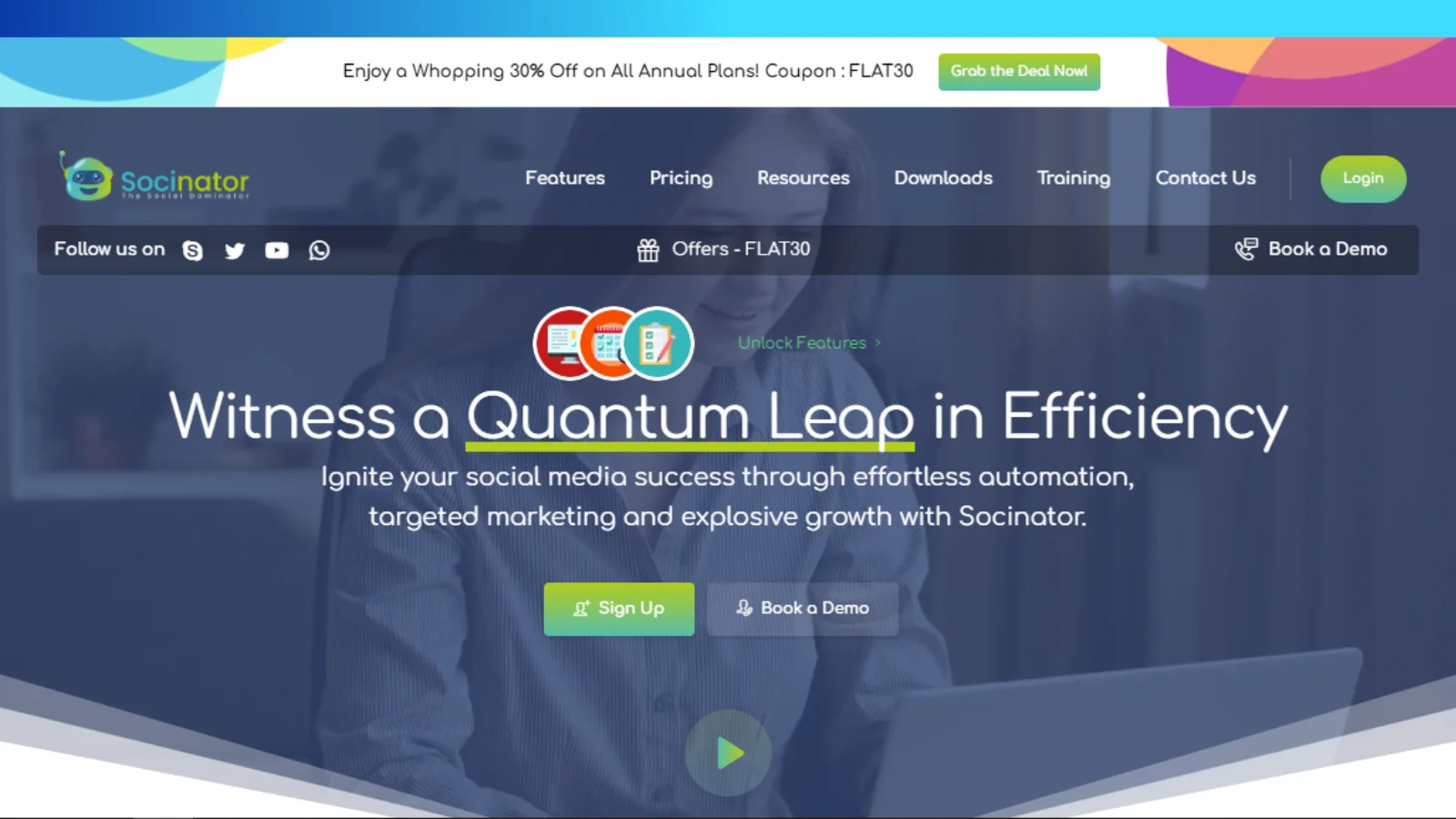
Socinator is a social media automation tool that can enhance B2B content marketing efforts by automating posting, engagement, and analytics across multiple platforms. It facilitates content scheduling, performance tracking, and efficient management of multiple social media accounts, enabling marketers to concentrate on crafting high-quality content and strategy.
Here’s how Socinator can support your B2B content marketing strategies:
- Scheduling and Automation: Socinator takes the legwork out of content distribution by allowing you to schedule posts across multiple social media platforms at optimal times for maximum engagement. It frees you up to focus on creating high-quality content.
- Engagement Tracking: See what resonates with your audience! Socinator monitors engagement metrics and interactions on your social media posts. This valuable data helps you understand which content types and topics generate the most interest, allowing you to refine your strategy for better results.
- Targeted Content: Not all content is created equal. Socinator’s advanced targeting options help you segment your audience based on demographics, interests, and behaviors. It enables you to tailor your content to specific segments, ensuring a more personalized and impactful experience.
- Content Curation: Sharing valuable industry content alongside your own establishes you as a thought leader. Socinator helps you discover and curate relevant content to share with your audience, further enhancing your brand’s image and credibility.
- Performance Measurement: Data is king! Socinator provides detailed analytics and reporting of your social media posts. These insights allow you to track performance, measure ROI, and continuously refine your content strategy for maximum impact.
By leveraging Socinator’s automation capabilities, you can ensure consistent and efficient content distribution, engage with your audience more effectively, and gain valuable insights to inform your B2B content marketing strategy.
B2B Content Marketing Examples –
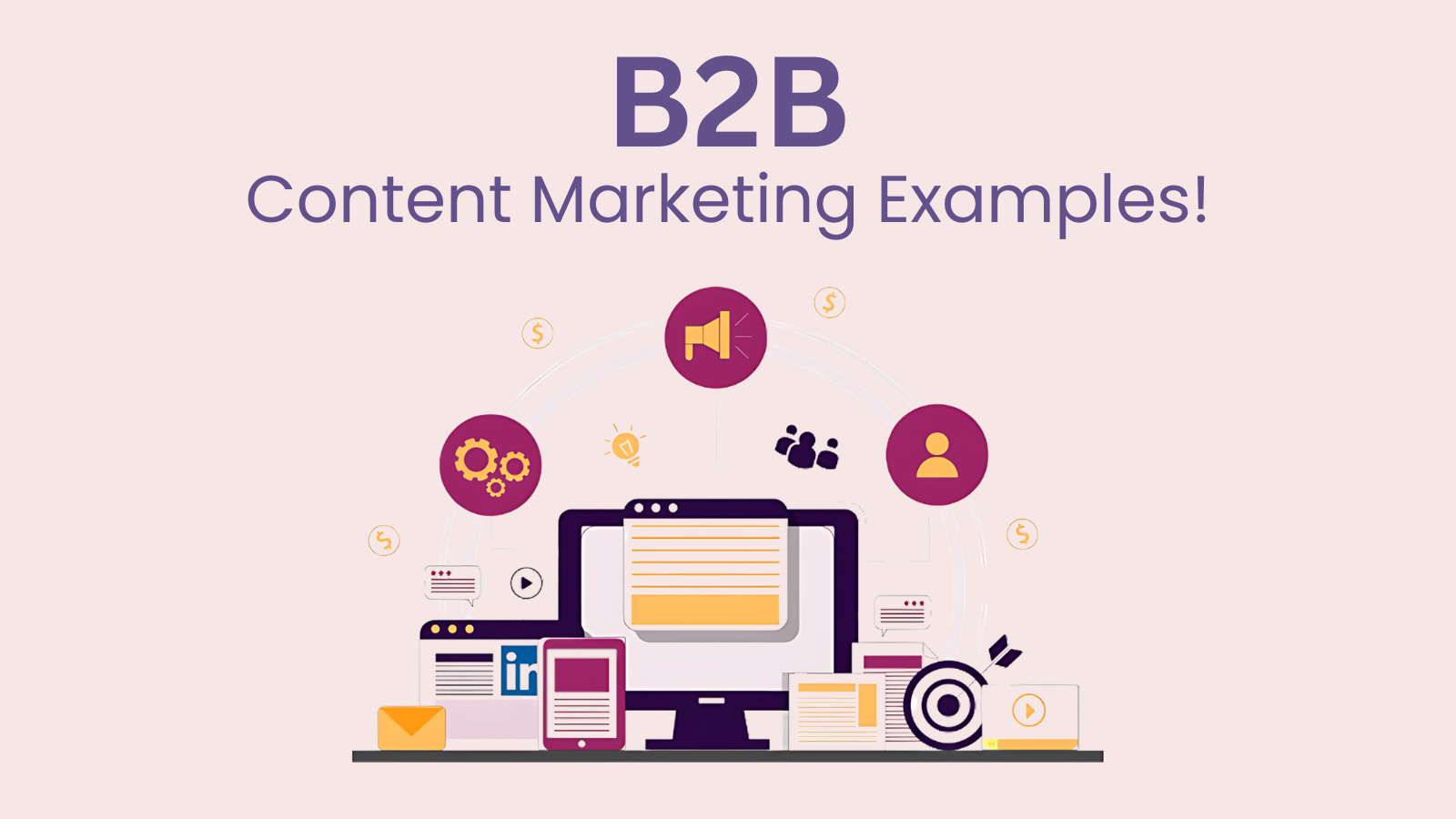 B2B (business-to-business) content marketing focuses on creating and distributing valuable, relevant, and consistent content to attract and retain a clearly defined audience and, ultimately, to drive profitable customer action. Here are some examples of B2B content marketing:
B2B (business-to-business) content marketing focuses on creating and distributing valuable, relevant, and consistent content to attract and retain a clearly defined audience and, ultimately, to drive profitable customer action. Here are some examples of B2B content marketing:
Salesforce:
Salesforce publishes comprehensive case studies that showcase how various businesses across different industries have benefited from their CRM solutions. These case studies often include video interviews featuring the clients, adding a personal touch.
These case studies highlight the practical applications of Salesforce CRM, providing valuable insights into its impact on business operations and customer relationships. Incorporating client testimonials in video interviews boosts credibility and provides a firsthand perspective on the transformative power of Salesforce solutions.
Adobe:
Adobe hosts regular webinars and virtual events covering topics related to digital marketing, creative software, and document management. These sessions often feature industry experts and provide practical insights and demonstrations.
Adobe’s webinars and virtual events provide insights on optimizing digital strategies, effectively using creative tools, and streamlining document workflows. Including industry experts ensures attendees receive up-to-date information and best practices, enhancing their proficiency with Adobe’s suite of solutions.
Deloitte:
Deloitte produces infographics that break down industry trends, research findings, and survey results, making the information more accessible and engaging for business leaders.
Its infographics simplify complex data and highlight crucial insights for business leaders to make informed decisions. By visually presenting trends and research findings, these infographics enable quick understanding and facilitate discussions on strategic planning and future initiatives.
McKinsey & Company:
McKinsey produces the “McKinsey Podcast,” which covers various topics such as business strategy, innovation, and industry-specific insights. These podcasts feature interviews with McKinsey consultants and industry experts.
Listeners of the “McKinsey Podcast” gain access to in-depth discussions that delve into current business challenges and cutting-edge strategies. Featuring insights from McKinsey consultants and industry leaders, these podcasts provide actionable advice and thought-provoking perspectives on navigating complex business concepts.
Gartner:
Gartner sends out newsletters that include the latest research reports, industry trends, and insights from their analysts. These newsletters target business leaders and IT professionals.
Subscribing to Gartner’s newsletters provides business leaders and IT professionals with timely updates on emerging technologies and market trends. Drawing on insights from Gartner analysts enriches decision-making processes by providing expert perspectives and strategic recommendations grounded in rigorous research and analysis.
Forrester:
Forrester Research produces detailed industry reports and surveys on technology trends, consumer behavior, and market forecasts. Business leaders often use these reports to inform their strategic decisions.
Forrester Research reports are renowned for their depth of analysis and reliable market predictions, providing actionable intelligence that aids in strategic planning and investment decisions. These reports capture current trends and anticipate future developments, empowering business leaders to remain agile and responsive in a rapidly evolving business environment.
These examples illustrate the diverse strategies and formats used in B2B content marketing to engage, inform, and persuade potential business clients.
Also Read:
The Ultimate B2B Marketing Strategy And Procedure For 2022
How to Implement Advanced Social Media Marketing for B2B?
Wrapping Up:
Staying ahead means being innovative and understanding your audience deeply in B2B content marketing. The ten strategies we’ve discussed are about creating authentic connections and memorable experiences.
These strategies are about more than just keeping pace—they’re about establishing new standards. Whether you’re improving your current efforts or starting anew, these insights will help you connect better and build lasting relationships. Use these ideas to elevate your B2B marketing and achieve great success in the coming year.
FAQ: –
Q1: What are some crucial components of B2B content marketing?
Some crucial components of B2B content marketing include identifying target audiences, devising a content strategy, producing high-quality content, using multiple distribution channels, optimizing for SEO, and evaluating performance with analytics.
Q2: How does B2B content marketing benefit businesses?
It builds trust and authority, generates quality leads, nurtures relationships, educates the audience, and improves SEO and online presence by providing valuable and informative content.
Q3: How can B2B marketers leverage AI in content creation?
AI algorithms analyze data to predict trends and consumer behavior, enabling B2B marketers to create personalized and engaging content at scale. It includes automated content generation, email campaigns, and data-driven insights for content strategy refinement.

